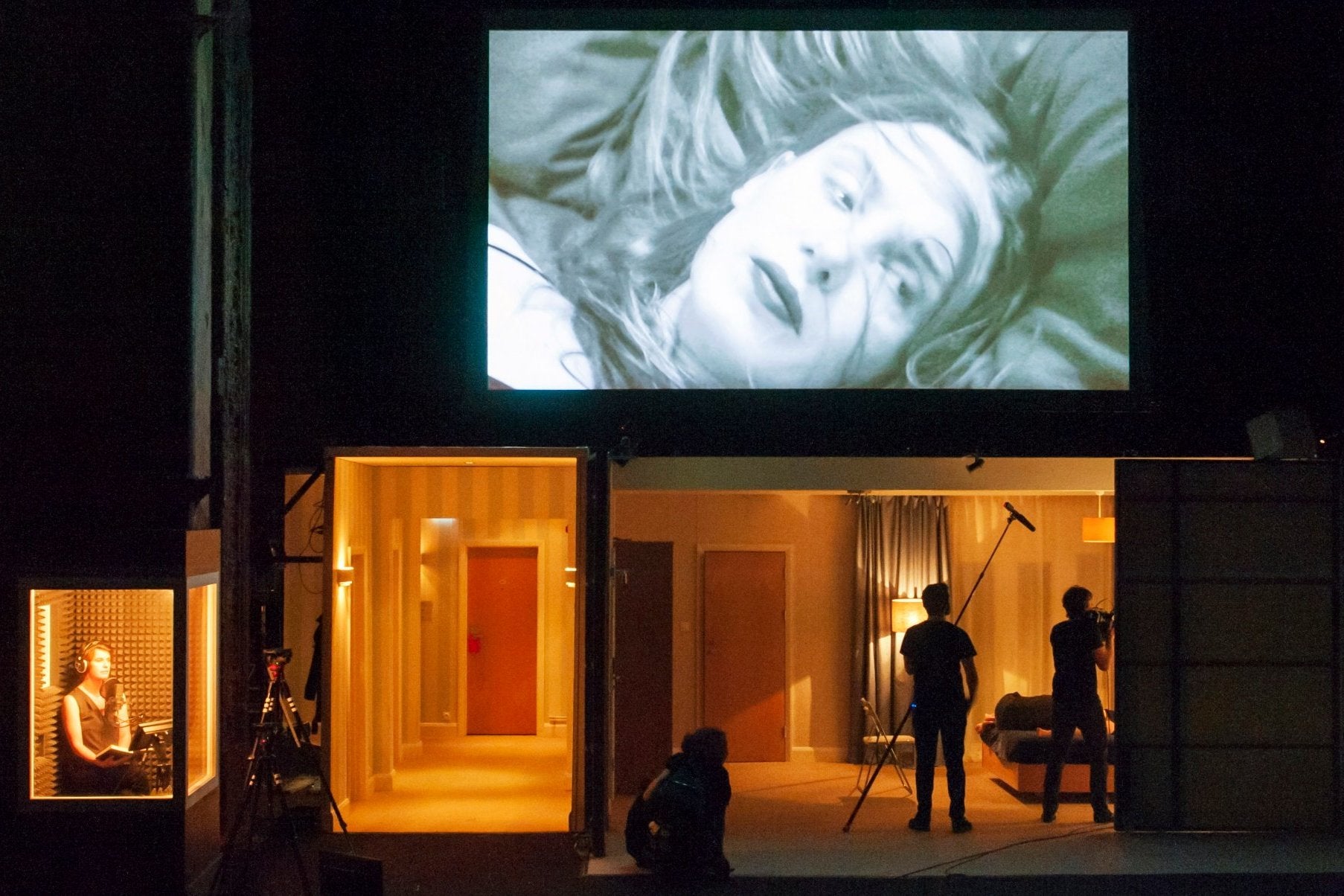'La Maladie de la Mort', Lyceum, Edinburgh review: Provocative and bound to cause controversy
A work that speaks to how an inability to emotionally connect turns us into vampires, offering insight into the violence that men commit on themselves and women

Your support helps us to tell the story
From reproductive rights to climate change to Big Tech, The Independent is on the ground when the story is developing. Whether it's investigating the financials of Elon Musk's pro-Trump PAC or producing our latest documentary, 'The A Word', which shines a light on the American women fighting for reproductive rights, we know how important it is to parse out the facts from the messaging.
At such a critical moment in US history, we need reporters on the ground. Your donation allows us to keep sending journalists to speak to both sides of the story.
The Independent is trusted by Americans across the entire political spectrum. And unlike many other quality news outlets, we choose not to lock Americans out of our reporting and analysis with paywalls. We believe quality journalism should be available to everyone, paid for by those who can afford it.
Your support makes all the difference.A picture: a nameless woman – Laetitia Dosch – looks out to sea. Her face is squashed up against a pane of glass, her eyes gaze into the distance at something we cannot see as behind her a man – Nick Fletcher – penetrates her. Another image: The same woman asleep.
The man watches and examines her body through the camera on his phone, the camera passing over her skin with the eye of a forensic scientist examining a corpse. We watch him watching her. We are implicated. We are voyeurs.
There are many angles to take and many ways of seeing Katie Mitchell and Alice Birch’s free adaptation of Marguerite Duras’ story, which arrives at the Edinburgh International Festival from the Theatre des Bouffes du Nord before transferring to the Barbican in October. It will not be without controversy.
It tells of a man who cannot feel, who tries to experience love by having a woman visit him each night in his hotel room to do his bidding. She must not speak unless asked to. She must submit to him. Clearly he is not going about things the right way.
The work was written by a woman – but then so was Fifty Shades – the creative team is female-led and yet it is deeply uncomfortable to watch. My stomach clenches throughout. You want to scream at this woman to run.
Paul Clark’s music places the unfolding scenario in Hollywood psychological thriller territory, and we know that when the camera focuses on a woman’s body it will end badly. Yet she still goes in the shower.
You keep watching, you cannot avert your gaze. It is all in the gaze. There is a moment when the woman looks out at us from the screen, her eyes huge and telling unspoken stories. She is not a victim, but a survivor.
Mitchell and Birch’s production operates both as a live performance and a movie, and as a movie being made in a hotel room, perhaps an art-house erotic thriller; maybe even a piece of cheap porn.
Everything is mediated by the camera, including our way of seeing it. You can try only to look at the live action and not the live action images projected onto the screen, but it is hard. Your eye is drawn to the screen just as our eyes are habitually drawn to the phone screen, so distancing ourselves from our own lives.
Mitchell and Birch make some changes to the story. The women is a sex worker. She has a child, a boy. She needs the money. We never discover anything about the man, except that he is addicted to porn. But Mitchell and Birch give her a back story in an exquisitely filmed sequence which is spliced into the main action.
It explains her, and why she can sniff the mortality on this man who is holed up in the tomb like hotel room. They introduce a third character, another woman – Irene Jacob – who sits in a recording booth, speaking a narration which offers an internal monologue on what is unfolding.
This is not a pleasant night out but it is a provocative and interesting one, which speaks to how an inability to emotionally connect turns us into vampires; offers insight into the violence that men commit on themselves and women; and which speaks potently against the romantic notion all a damaged man needs is saving by a good woman. Better we save ourselves and our sons.
Join our commenting forum
Join thought-provoking conversations, follow other Independent readers and see their replies
Comments